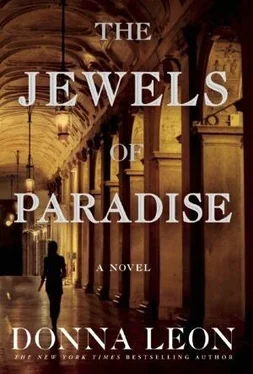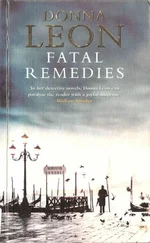“It’s late, I’m tired, and I’m having dinner tomorrow night with a very attractive man I’ve met here. I almost hope nothing comes of it because he’s a lawyer, and I’d hate to have to revise my opinion of them as bloodsucking opportunists.
“There’s a spare room in this apartment they’ve given me, just in case you think about coming home and maybe don’t want to stay with Mamma and Papà . Love, Cati.”
As soon as she sent the mail, she realized she should not have said that last, about coming home. That’s the trouble with emails: you write them in haste and send them off, and that means there’s never time to steam the letter and read it through again to see if you should say it or not.
She turned off the computer and, leaving the open books where they were, went to bed.
The next day she awoke filled with an inordinate sense of expectation, and for the first few moments she could not locate the source of the feeling. But then she remembered her dinner date with the bloodsucking opportunist, laughed out loud, and got out of bed.
Andrea was to come by and pick her up at the Foundation at 7:30. This would give her the chance to stop at the Foundation before going to the Marciana, to spend the day in the library, and then return to the Foundation to send a report of the day’s reading. She could not rid herself of a conspiratorial glee at the thought that she would go to the Foundation to send her email to Dottor Moretti to send on to the cousins and then go out to dinner with him.
As soon as she stepped outside, she felt that the weather had changed and the spring had decided to become serious about itself. She had spent time in Manchester, she reminded herself, and had learned to mistrust the weather, but still she saw no need to go back up four flights of stairs to get a heavier jacket or a scarf. When she came out onto the Riva, however, she was hit by the wind coming off the water and hurried toward the Arsenale stop, deciding to take the vaporetto, even if for only one stop. A number 1 came from behind only a minute after that but her automatic calculation told her there was no way to get it, even if she were to break into a run, which she refused to do. She watched it pass her by, and she kept on walking, cutting in at Bragora to get away from the wind.
She let herself into the building and went down to Roseanna’s office. The door was open and she looked in to see Roseanna at her desk, her telefonino at her ear. The other woman smiled and waved her inside, said a few polite words into the phone, then ended the conversation. She dropped the phone on her desk, got up to come around to give Caterina two kisses. “Any progress?” she asked, but with curiosity and not reproach.
“I’ve been doing background reading at the Marciana,” Caterina explained. Roseanna leaned back against her desk, her hands propped flat behind her, ready to listen.
“I found a letter he wrote to two men called Stievani and Scapinelli.”
“Really?” Roseanna’s curiosity was splashed across her face.
“Yes. The original two cousins,” she said and was pleased to see Roseanna’s answering smile.
“What did he tell them?”
“They—he and the two of them—were heirs to some houses near San Marcuola that had been taken over by the Labia family. He wanted to meet them to discuss what to do about getting possession of the houses and selling them. It sounds like he was short of money.”
When Roseanna didn’t respond, she continued. “They didn’t answer him.”
“What happened?”
“I don’t know. There was no answer from them in the archives.”
“What did he sound like?” Roseanna asked thoughtfully, as if she were speaking of a person Caterina had just met.
“Excuse me?”
“Steffani. What did he sound like in his letter?”
“Polite,” she said after a moment’s reflection, not having given this conscious thought while she was reading the letter. “And weak,” she added, surprising herself even more. “He all but begged them to get in touch with him, and he kept insisting that his only motivation was the good of the family, almost as if he thought they’d have reason to doubt that.” She thought about the letter a bit longer and added, “It made me—I don’t know—uncomfortable.”
“Why?”
“Because the tone was so humble. People then were more formal with one another than we are, and the language was more elaborate and full of all sorts of formulaic courtesies,” she conceded. “But this was too humble, and I suppose it troubled me because it was so out of place in a man of his stature.”
“As a musician?”
“Yes. And he was a bishop, for heaven’s sake. So to hear him use this tone with two cousins from a provincial place like Castelfranco, to try to convince them to help him get money . . . well, it was difficult to read.” It occurred to her that, if anyone knew for certain whether Agostino was a castrato, it would be members of his family; perhaps this explained his painful deference toward them.
“Does that mean you’ve come to like him? Steffani?” What strange questions Roseanna asked. Caterina had never thought in terms of liking him or not. His life puzzled her, but she had persuaded herself that her main interest was in trying to find out enough about him to be able to do her job.
She raised a hand and made a seesawing gesture. “I don’t know if I like him.”
Her answer took her by surprise. She liked his industry, the fierce pace at which he drove himself, but those were qualities, not a complete person. “I have to keep on looking,” she heard herself say.
“Upstairs?” Roseanna asked, following the question with an upward gesture with her chin.
“No. In the Marciana. I’ve still got a few things to look at.”
“Good luck.”
Caterina smiled her thanks and, spirits suddenly uplifted, started toward the Marciana.
She found her carrel as she had left it the day before. She had stopped on the way to replenish her supply of chocolate and energy bars, though her researcher’s conscience did not rest easy about having done this. Before turning her attention to the books, she stood at the window and considered her reading of the past few days. What she had read, both in the documents at the Foundation and in the books in her carrel, had raised as many questions as they had answered.
She sat and opened her notebook and pressed it flat, then opened a new book. This one separated its analysis into biography and music. She’d started it two days before but had been waylaid by the allure of the so-called affair. Well, enough of that and back to work.
She read carefully, skimming over the by now familiar details of his early life, until he went to Hanover in 1688 as court composer. As happened each time she read or thought of it, she was struck by how odd that combination seemed in these times.
Vivaldi was a priest as well as a musician, but he had used his position in the Church as a means to further his music, the center of his life. He had lived and worked as a musician, and he had composed up until his death, probably in the arms of his life’s companion, Anna Girò. Caterina knew precious little about his life, but she knew that things ecclesiastical, other than sacred music, played no part in it, nor did he ever aspire to any higher clerical position.
This was not the case, surely, with Steffani, upon whom benefices and titles rained. The shining purpose of his life, for which he apparently abandoned composing, was the return of northern Germany to the Catholic Church, at which he proved a dismal failure. She found accounts of his endeavors in two histories of the Church in northern Germany, written in Latin and German. Each praised his enterprise and dedication, describing his achievements in Hanover and Düsseldorf. The German text devoted a mere five pages to his work as a musician.
Читать дальше












